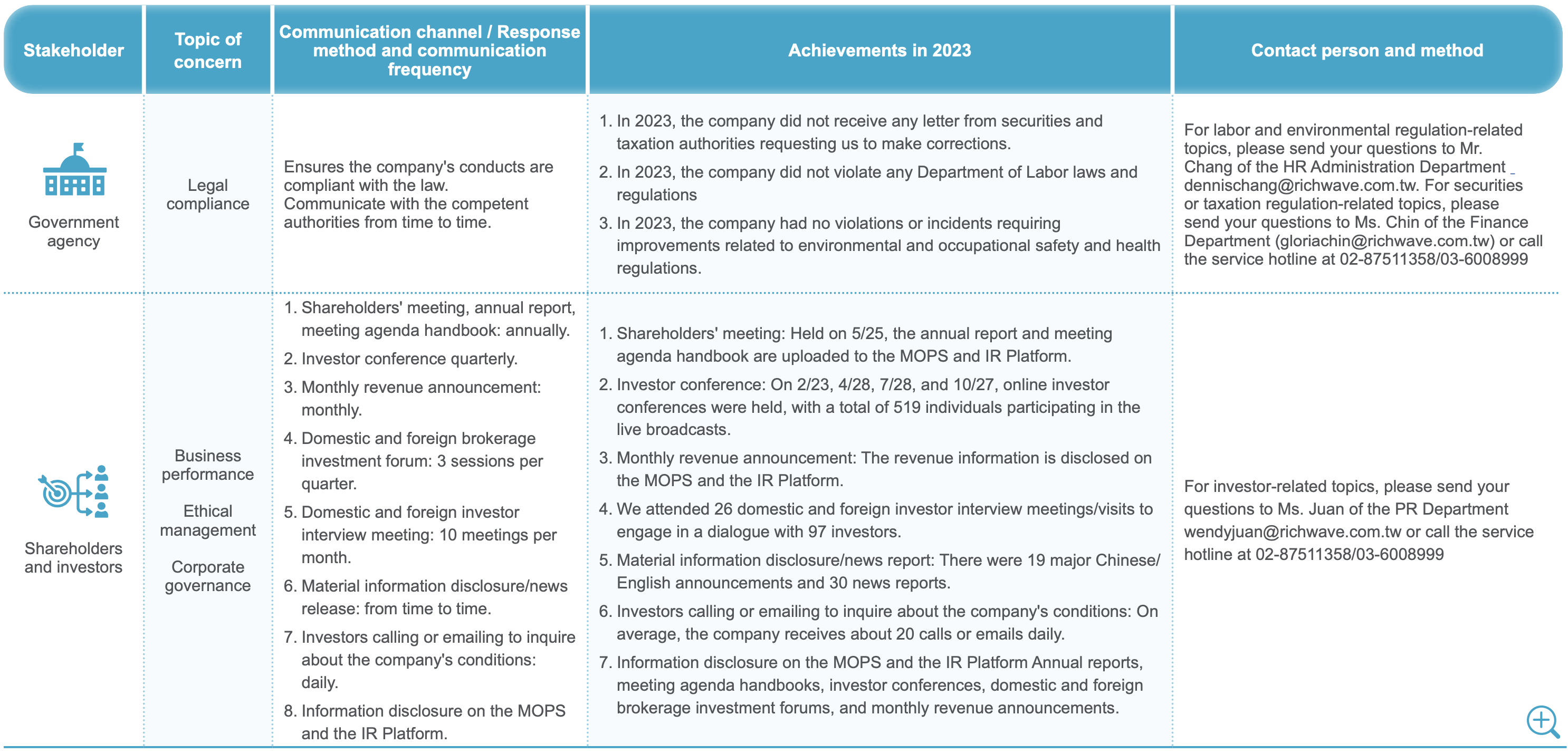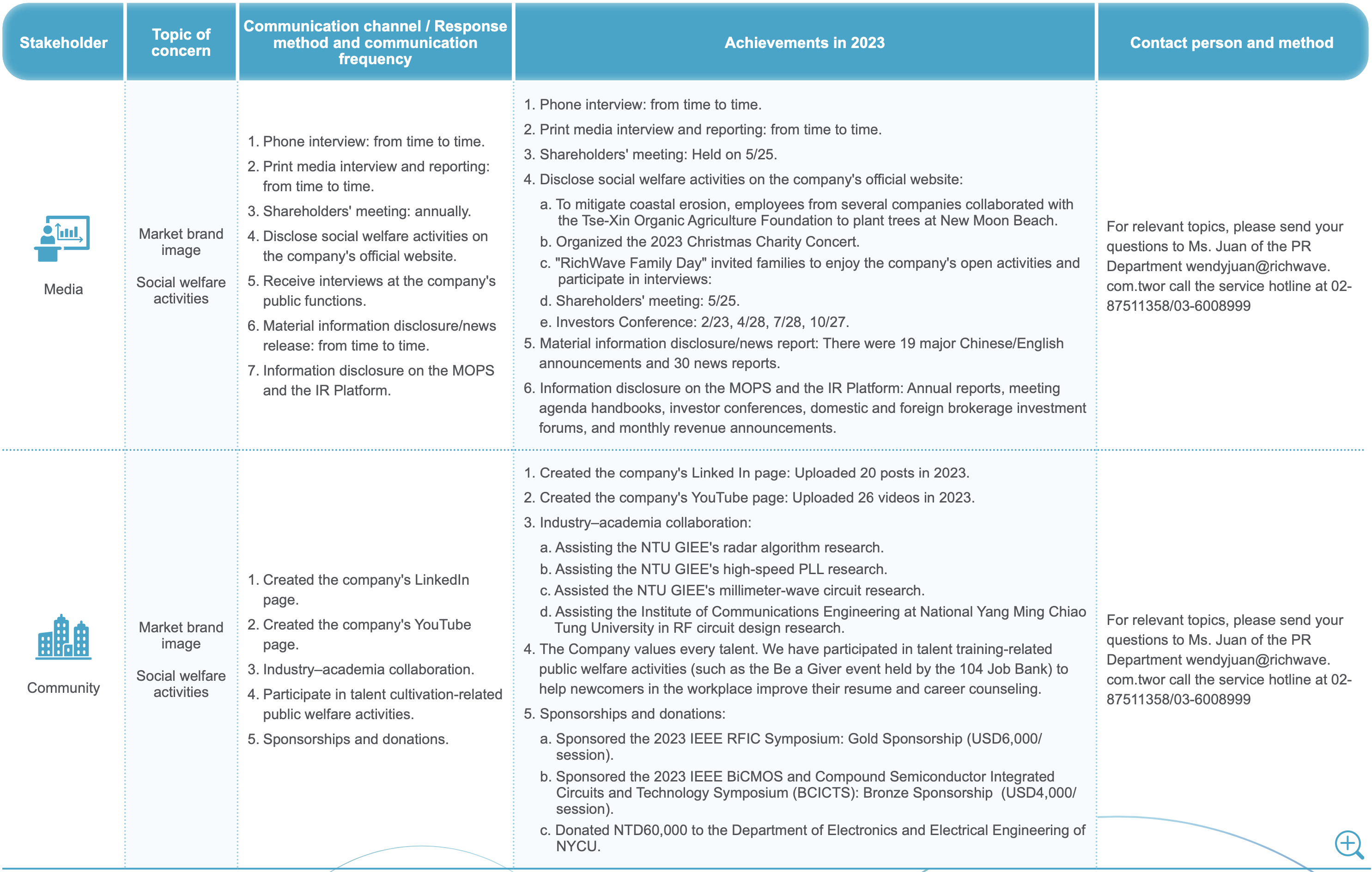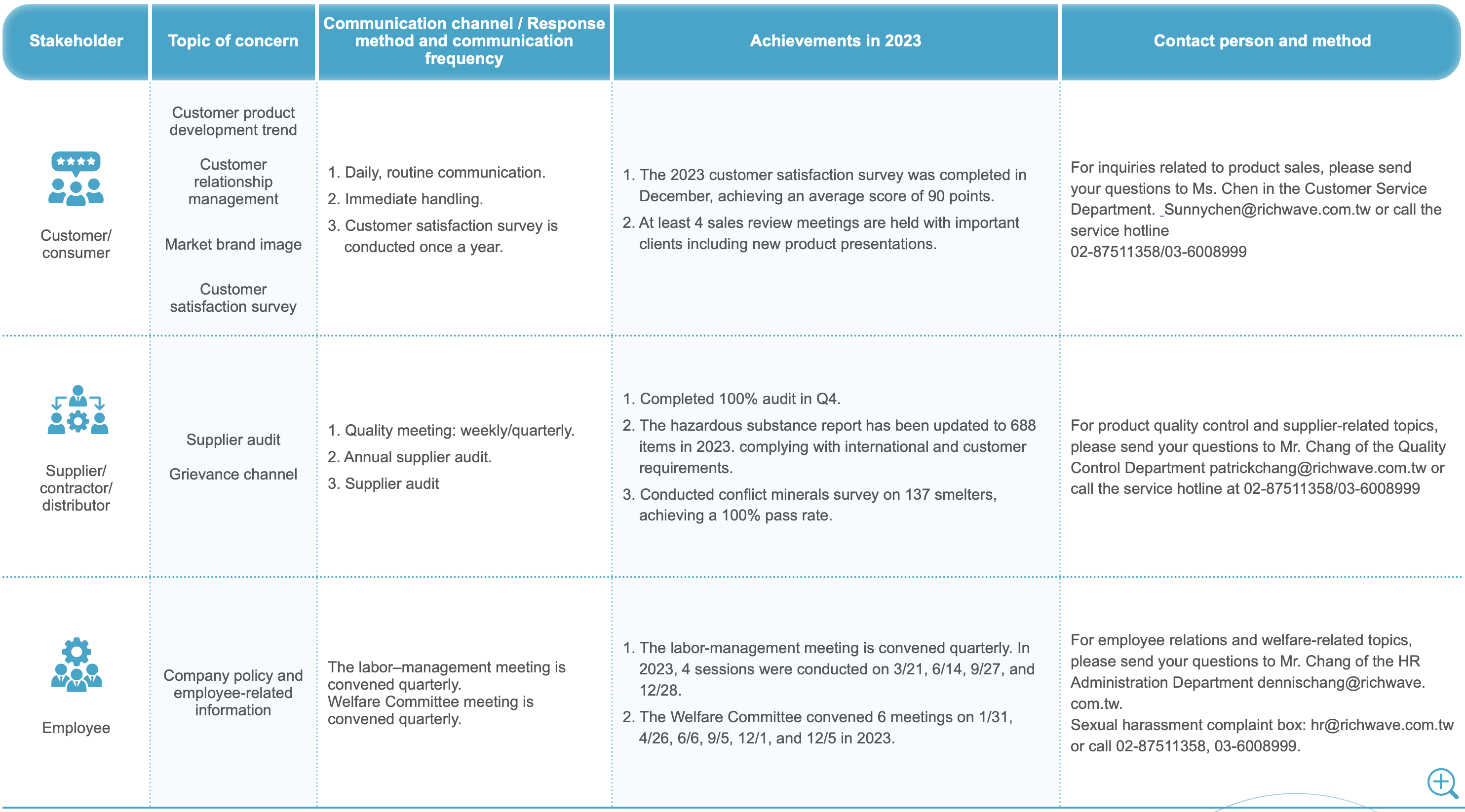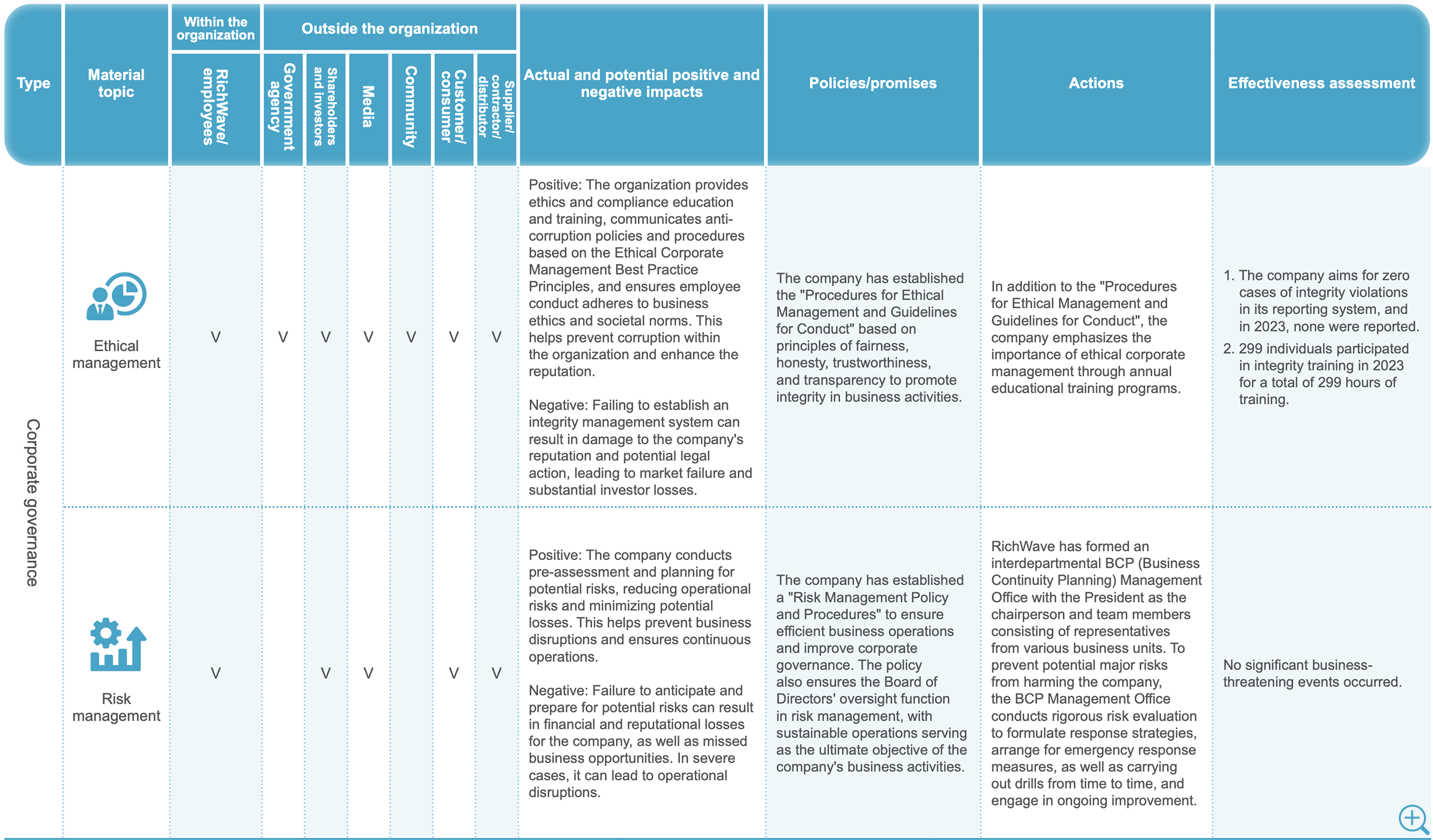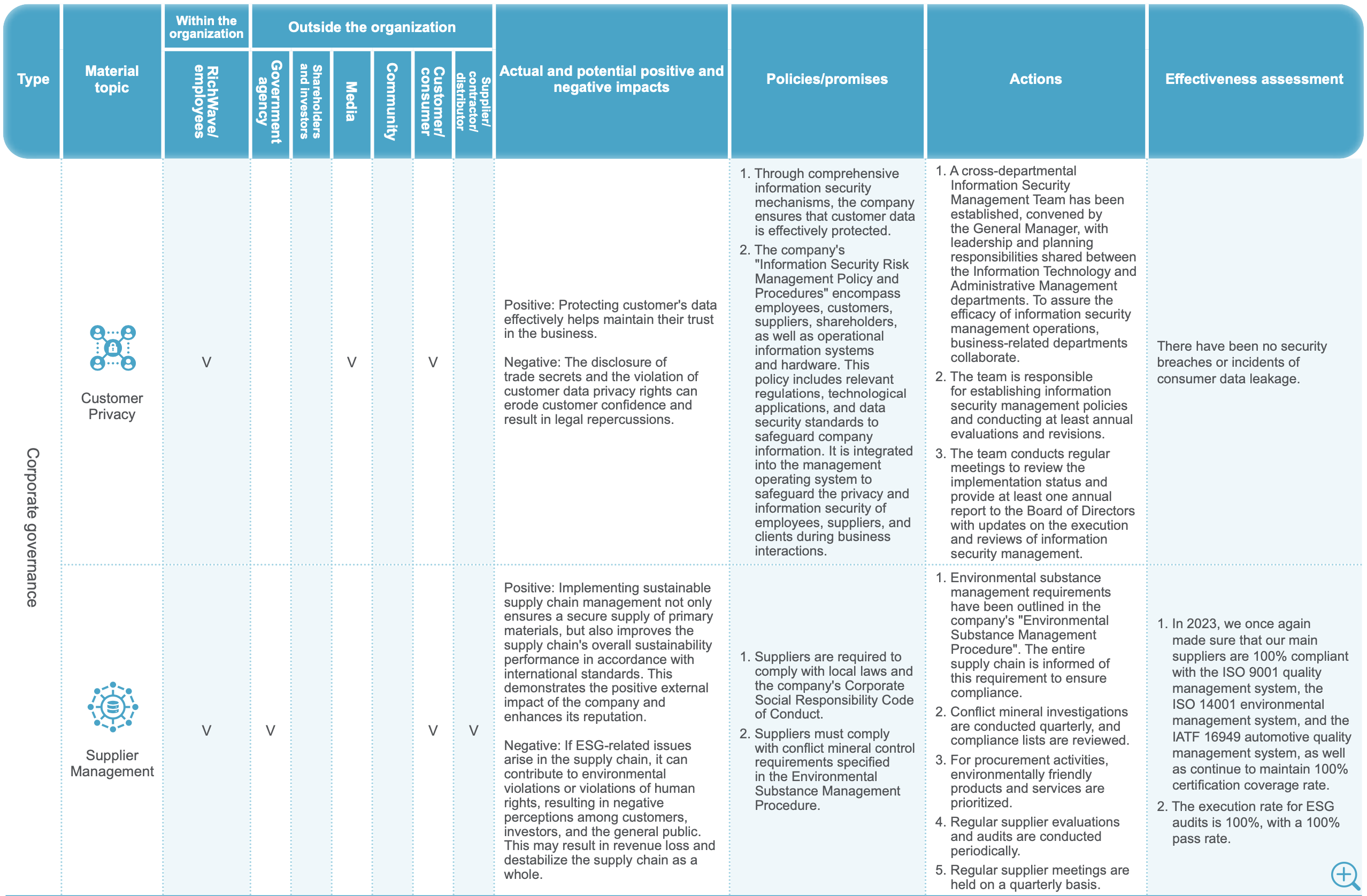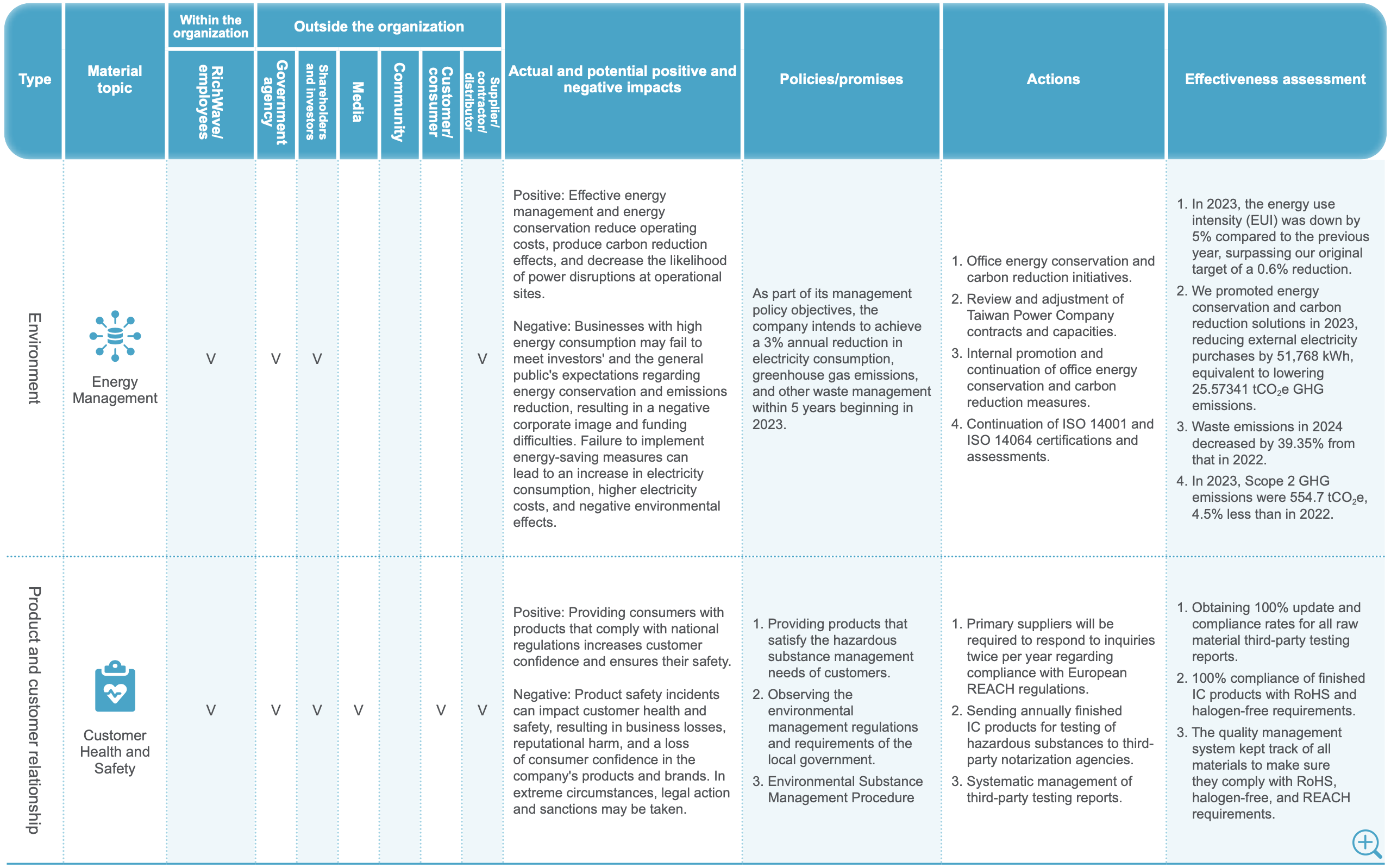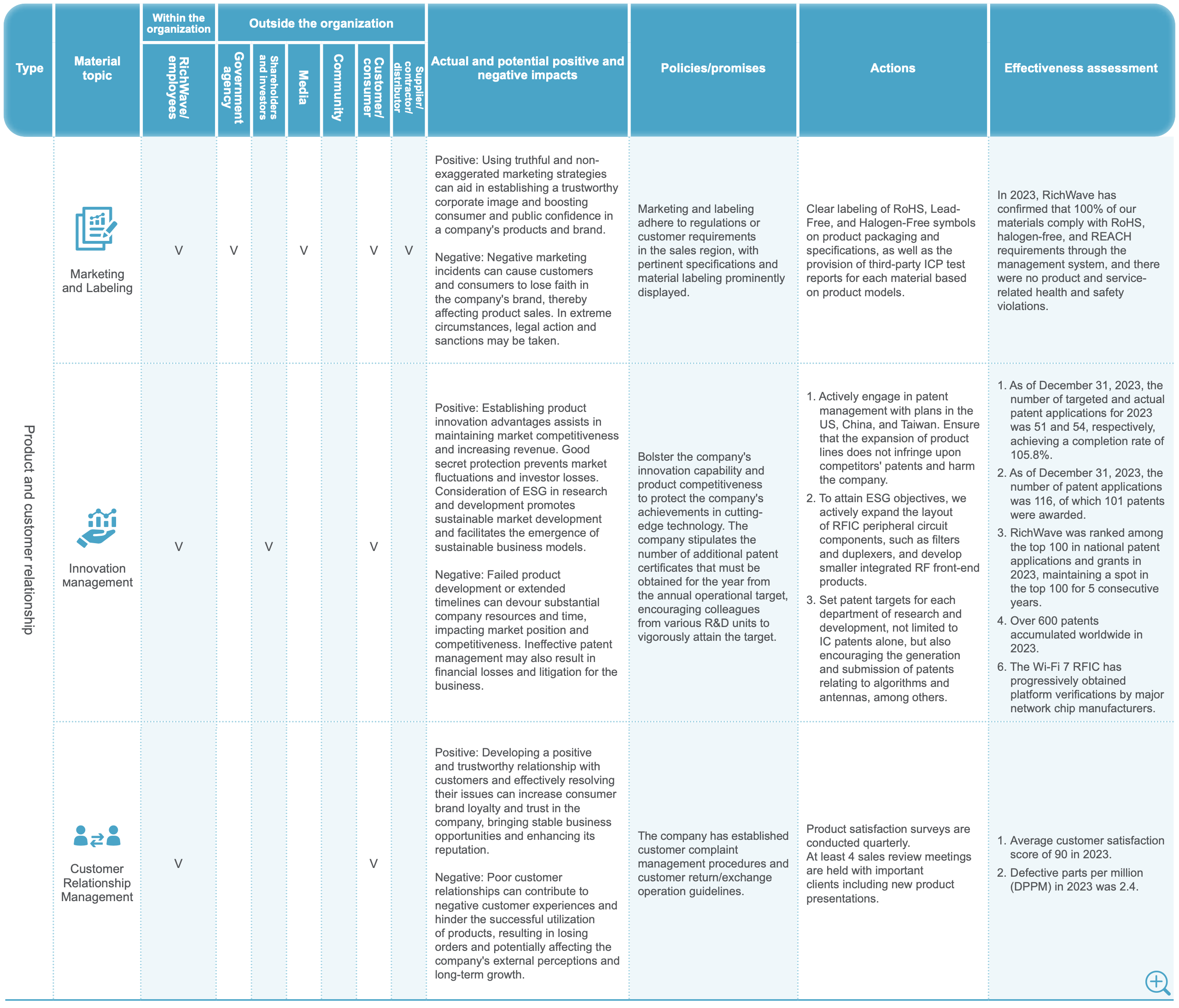- About
- Applications
- Products
- Quality
- Careers
- Investors
- ESG
- Contact
Home / ESG / Stakeholder Communication and Materiality Analysis
Stakeholder Engagement
RichWave has taken into consideration the "stakeholder inclusiveness"of the GRI standards to define the internal/external groups or individuals that have an impact on the company or are being impacted by the company's actions as RichWave's stakeholders. Furthermore, the definition is used to identify 7 major stakeholder groups that exert an influence on the company or are being influenced by the company in 3 dimensions such as governance, environment, and society. These groups include the government, RichWave's shareholders and investors, media, communities, our customers/ consumers, suppliers/contractors/distributors, and employees.
The opinions of stakeholders are fundamental to the ESG development of the company. The primary goal of engaging with stakeholders is to establish effective communication and exchange channels, ensuring a clear comprehension of their concerns and suggestions, which in turn serve as directions for the company's continuous improvement and expansion. We compile the priorities and concerns of various stakeholders through a variety of communication channels. RichWave establishes distinct communication channels for each stakeholder group based on their influence and areas of focus. We are able to actively respond to and meet the needs of stakeholders by nurturing effective communication channels between relevant departments and stakeholders. In addition, we annually divulge relevant information via public platforms, demonstrating the company's commitment to addressing stakeholders' concerns.
Material Topic Identification
To gain a deeper understanding of stakeholder concerns regarding sustainability issues and translate them into strategic directions for the company's sustainable development, we followed the 4-step GRI Guidelines 2021: context analysis, impact identification, significance assessment, and review and confirmation. This process involved analyzing global sustainability trends, domestic and international relevant industries, and high-priority sustainability issues for stakeholders. We conducted a questionnaire survey to analyze the probability and extent of the potential positive and negative effects of these issues on the company after evaluating their potential positive and negative effects. This process resulted in the identification of a list of annually significant topics, which were subsequently confirmed and decided upon by the Sustainable Project Management Office's members. In 2022, 19 sustainability issues were identified through the abovementioned process, from which 9 material topics were selected. The 2023 annual report builds upon the analysis from 2022, serving as the basis for writing and disclosing the sustainability report, which will carry out a comprehensive evaluation of the company's effectiveness in sustainable business governance.
Material Topic for 2023
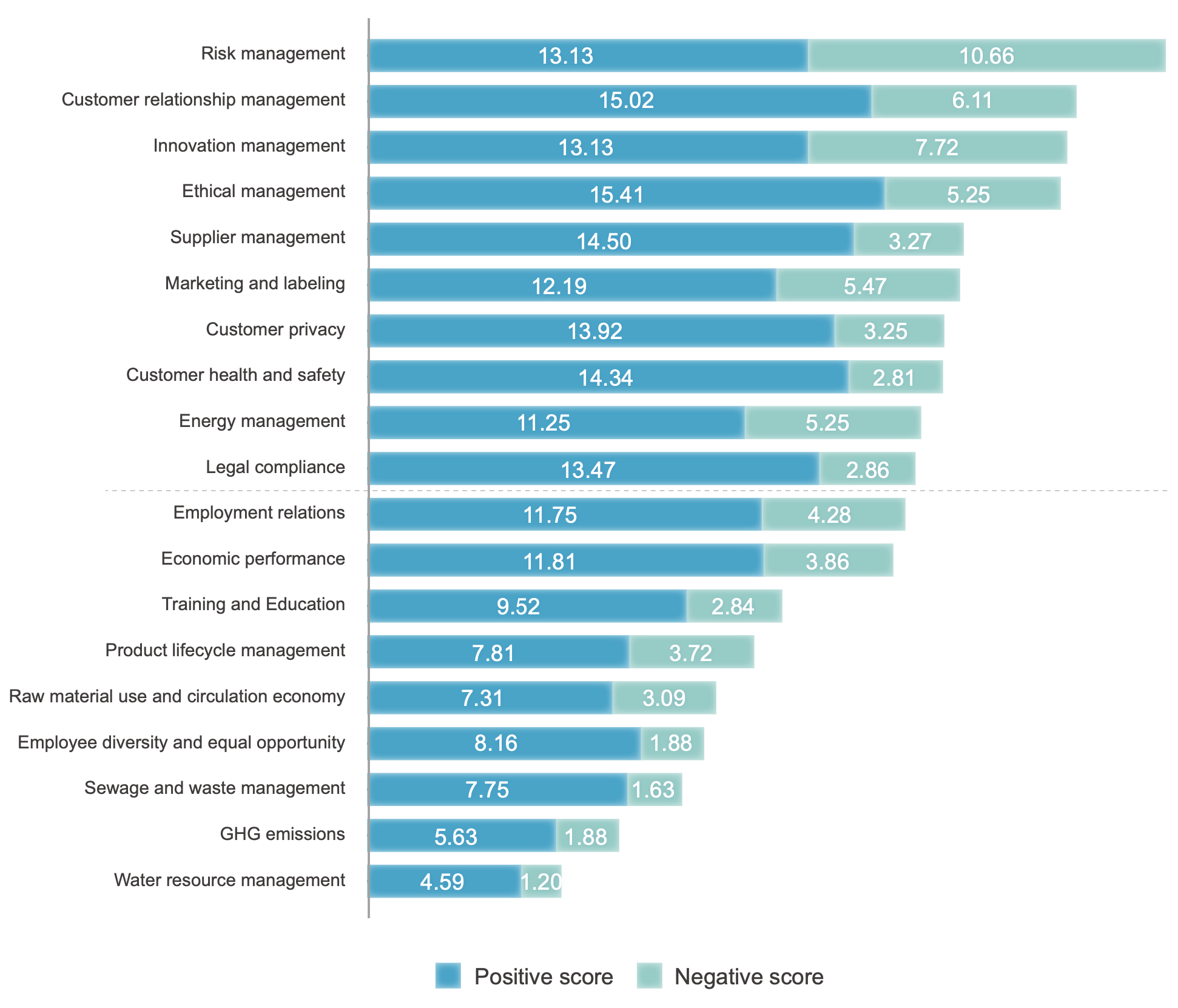
Material topic management guideline
Lost your password? Please enter your email address. You will receive a link to create a new password.

